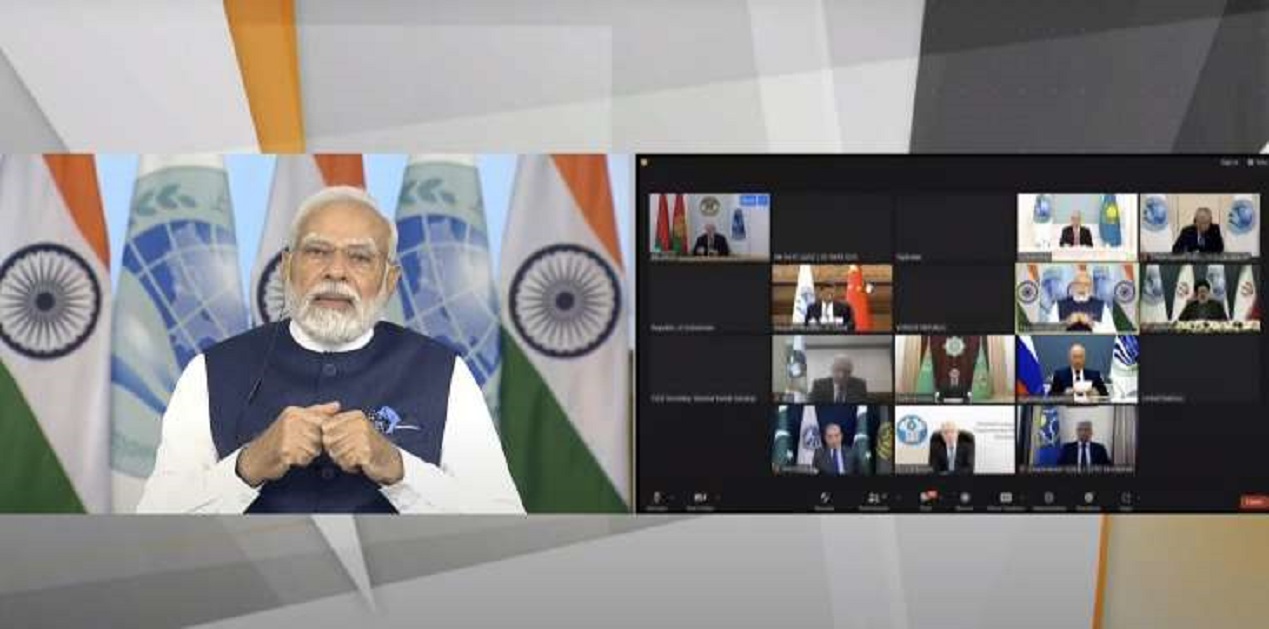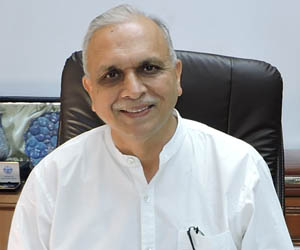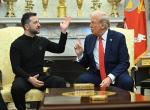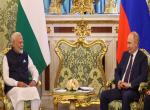Prime Minister Narendra Modi hosted the 23rd summit of the Council of Heads of State of the Shanghai Cooperation Organisation (SCO) on 4th July 2023 in a virtual format. This concluded India’s first-ever presidency of the SCO. The baton was passed on to Kazakhstan. How should one assess the summit and India’s presidency?
From India’s point of view fighting terrorism has been a critical issue. PM Modi forcefully mentioned “some countries” using “cross-border terrorism as an instrument of their policies” and urged SCO not to “hesitate to criticize such nations.” Pakistan was not mentioned by name, of course. That would have been against the SCO protocol.
Connectivity is another issue close to India’s Central Asia policy. PM Modi spoke of the need for “strong connectivity” but underlined that it was “essential to uphold the basic principles of the SCO charter, particularly respecting the sovereignty and regional integrity of the Member States.” China or the BRI were not named directly but India’s unease with BRI was visible.
The PM welcomed the inclusion of Iran as a full member and brought up Chabahar and the International North-South Transport Corridor. Both projects have been languishing for a while due to a variety of reasons. He reached out to Iran, Russia and Central Asian countries when he said, “Following Iran's membership in the SCO, we can work towards maximizing the utilization of the Chabahar Port. The International North-South Transport Corridor can serve as a secure and efficient route for landlocked countries in Central Asia to access the Indian Ocean. We should strive to realize its full potential.”
Pakistan’s Prime Minister Shahbaz Sharif hit back by asking countries to avoid the “temptation to use” terrorism “as a cudgel for diplomatic point-scoring… Instead of cherry picking for narrow political gains, terrorism in all its forms and manifestations, including state terrorism, must be condemned in unambiguous terms.” India was not mentioned directly but the hint was clear when he said, “There can be no justification for the killing of innocent people, regardless of the cause or pretext. Similarly, religious minorities should never be demonized in the pursuit of domestic political agendas.” At the same time, he was effusive in the praise of the China-Pakistan-Economic-Corridor, describing it as a ‘flagship” project of the Belt and Road Initiative (BRI).
SCO’s fight against terrorism, a key pillar of the SCO charter, is likely to be diluted due to differing views among member countries. The SCO joint statement says, “Subject to their national laws and on the basis of consensus, the Member States will seek to develop common principles and approaches to form a unified list of terrorist, separatist and extremist organizations whose activities are prohibited on the territories of the SCO Member States.” Putin even spoke about the need to “transform the regional SCO anti-terrorist structure into a universal centre that would be responsible for responding to the entire range of security threats.” But developing a consensus on such a list will be difficult considering that some of the global terror groups like LeT and JeM are rooted on Pakistani soil.
Larger issues were also playing out at the summit that was held in the shadow of the continuing Russia-Ukraine war and the Wagnor rebellion in Russia. Russia’s anxieties were clearly showing. President Putin said Ukraine had been converted by the West into an anti-Russian, hostile state. He complained that Russia was being “subjected to a hybrid war, with illegitimate anti-Russian sanctions that are unprecedented in scale.” He thanked the member countries for their support of Russia during the mutiny. Other members avoided mentioning the mutiny or the war directly but they did talk about a dangerous international environment.
President Xi Jinping sounded confident. In the 5-point cooperation proposals, he showcased China’s BRI, the Global Security Initiative, the Global Development Initiative and the Global Civilisation Initiative and invited member countries to take advantage of what China was offering as part of the cooperation package. He pitched the SCO as a “community of shared interests”, another of his pet phrases. These days Xi Jinping does not miss a chance to project China as a kind, benign global and regional leader. At the same time, he urged the member countries to be “highly vigilant against external attempts to foment a new Cold War or camp-based confrontation in our region.” The reference was clearly towards the US and the West.
SCO is positioning itself as a key organisation in the emerging world order. The SCO joint statement, now called the New Delhi Declaration, spoke of a “more representative, democratic, just and multipolar world order”. Here the anxiety about the Western hegemony is clearly visible. While declaring that SCO is “not directed against other states”, the jint statement said that SCO reaffirms the “relevance of initiatives to promote cooperation in the building of a new type international relations in the spirit of mutual respect, justice, equality and mutually beneficial cooperation, as well as the formation of a common vision of the idea of creating a community of the common destiny of humanity.” Some of this phraseology is clearly of Chinese origin.
China’s clout in the SCO is unmatched. All countries except India came out in explicit support of the BRI. The specific paragraph in the joint statement read, “Reaffirming their support for China's "Belt and Road Initiative" (BRI) initiative, the Republic of Kazakhstan, Kyrgyz Republic, Islamic Republic of Pakistan, Russian Federation, Republic of Tajikistan and the Republic of Uzbekistan note the ongoing work to jointly implement this project, including efforts to link the construction of the Eurasian Economic Union and BRI.”
The use of Yuan and Ruble as currencies of settlements is growing in the SCO. The joint statement spoke in favour of “implementing the Roadmap for a gradual increase in the share of national currencies in mutual settlements by the interested Member States.” Putin revealed that “over 80 percent of commercial transactions between Russia and the People’s Republic of China are made in rubles and yuan.”
For the Central Asia leaders, security, Afghanistan, economic development, food security, connectivity, digitalisation, skill development, climate change, ecology, transport corridors, and energy, remain amongst the most important expectations from the SCO. They also want to see SCO reformed and be provided with adequate funds and institutional capabilities. Kazakhstan’s president Tokaev, the incoming chair of the SCO Council of Heads of State, said his effort will be to build cooperation in the “military-political” area. He described SCO as the “most successful” international organisation. Uzbek president Mirziyoyev spoke of reforming the organisation and gave a set of comprehensive proposals in this regard. He urged the SCO to stick to its “core principles” including maintaining a “non-aligned status”. Kyrghyz president Zhaparov dwelt on the situation in Afghanistan, the need for setting up an SCO development bank, transition to settlements in national currencies and called for establishing an SCO centre of organised crime in Bishkek. In a similar vein, Tajik president Rahmon asked the SCO to set up a separate anti-drug centre in Dushanbe. He described SCO as “embodying unique interconnectedness of civilisations and cultures”. Significantly, he was the only president who appreciated Indian activities within the framework of Varanasi – the cultural capital of the SCO”.
India and the SCO
India steered the SCO well. It held 14 inter-ministerial meetings and involved all observer and dialogue partners of the SCO in fourteen different programs. More than 140 events were hosted by India under its presidency. The areas covered included emerging fuels, decarbonisation of the transport sector, digital transformation and cooperation in digital public infrastructure. Strengthening the people-to-people contacts, India hosted for the first time the SCO millet food festival, film festival, SCO Surajkund craft mela, Think Tanks conference, and an international conference on shared Buddhist heritage. India has brought many new ideas and energy to the SCO. China is not the only one giving ideas and proposals in the SCO.
Although India has not signed the SCO’s economic development strategy 2030, its capabilities gel very well with the identified priority areas such as “the digital economy, high technology and innovation, creation of new and modernisation of existing international routes for road and rail transport, multimodal transport corridors and logistics centres, finance and investment, energy and food security, reliable, resilient and diversified supply chains, industrial cooperation and inter-regional ties.” India can contribute in these areas at bilateral level.
India’s SCO presidency has triggered a debate in India on whether India’s participation in SCO is meaningful anymore in the light of changing international environment, rising tensions and growing east-west schism. SCO’s orientation is seen as anti-west, anti-US. India is perceived as tilting towards the West. The argument is how can India square its membership in anti-West SCO with its membership in the Quad which is seen negatively by Russia and China. In other words, the critics point out that there are growing contradictions in India’s foreign policy – being a member of SCO and groupings like the Quad is simply not compatible. India will have to sooner and later make choices. PM Modi’s successful visit to the US is seen as proof that India is hitching its wagon with the US and the West. This makes its position in the SCO untenable. Further, SCO is dominated by China. Therefore, India can make hardly any difference in the SCO.
One needs to take a more nuanced and hard-headed view of India’s dilemmas. The Quad is focussed on the Indo-Pacific and maritime security. What about India’s Eurasian compulsions? Should India leave Eurasia to China, Russia and others? Can the US or the Quad safeguard India’s strategic interests In Eurasia? How should India deal with Afghanistan, Iran, China and Russia which are major countries in Eurasia? Did India not go into the SCO to safeguard its interests in Central Asia and Eurasia? If we seek answers to these questions, the importance of SCO for India becomes self-evident. Central Asia is a key priority for Indian security. India has some say in this most significant Eurasian forum. We should use it to our advantage. That is a challenge but not an impossibility.
The reality is that in today’s complex, multipolar world there are no black and white options for any country. Multi-engagement and multi-alignment are the norm. Even the US, which regards China as a strategic rival, is making efforts to manage the rivalry. That is why top US leaders have visited China in recent weeks. Interdependence is the key feature of today’s multipolarity. If such is the case, there is no reason why India cannot be with the SCO and the Western groupings at the same time and manage the contradictions by taking issue-based, pragmatic approaches.
A middle-of-the-road approach has its advantage and would suit a large, developing country like India well. We are used to this. Further, India is now pitching itself once again as a champion of the Global South. This has struck a chord with a large number of developing countries some of whom are in the SCO, BRICS, NAM and a variety of regional organisations. Few countries want to see the return of a new cold war which would debilitate their growth and hamper the resolution of global issues of governance.
India should see SCO as an opportunity and not a problem. Indeed, China’s influence in the SCO is paramount and Pakistan’s presence can thwart Indian initiatives. But today India has capabilities which it can offer to several SCO countries. SCO can also be used to strengthen bilateral relationships and vice versa. Without overestimating its strengths, India should remain active in the SCO and work for its reformation. SCO gives it a platform to remain relevant in the Eurasian region. As PM Modi said at the SCO summit, “India is committed to actively contributing, together with everyone, for the success of the SCO.” That is the right approach. We should ask the question: Can India afford to remain absent from Eurasia?
(The paper is the author’s individual scholastic articulation. The author certifies that the article/paper is original in content, unpublished and it has not been submitted for publication/web upload elsewhere, and that the facts and figures quoted are duly referenced, as needed, and are believed to be correct). (The paper does not necessarily represent the organisational stance... More >>
Image Source: https://resize.indiatvnews.com/en/resize/newbucket/730_-/2023/07/PTI07_04_2023_000054B.jpgv











Post new comment